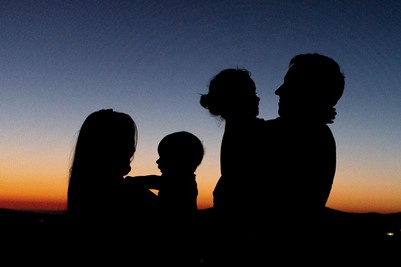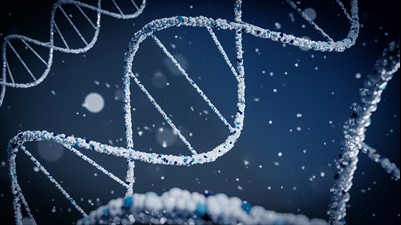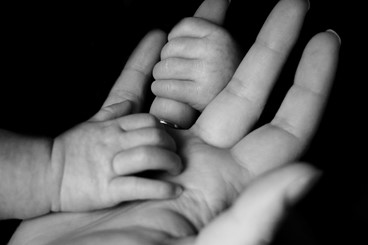Anonymity for donors until children turn 18 – can this be maintained?
by Debbie Kennett, Author, speaker and expert on genetic genealogy
Legislation cannot always anticipate technological advances, and this is particularly the case in the world of donor conception. The law in the UK changed on 1st April 2005 so that those born through donor conception after this date will be able to have access to identifying details about their donor at the age of eighteen.1 2
The first cohort of donor-conceived people to benefit from this this change will be able to access their records in 2023.
However, the law was not retrospective so anyone born before this date will not have the same right of access. Since the legislation was passed, advances in direct-to-consumer (DTC) genetic testing and the rapid growth of the international genetic genealogy databases have rendered the concept of anonymous donation obsolete.3 4 It is highly unlikely that the existing restrictions can be maintained.

In 2005 only a few hundred thousand people had taken a DNA test. Today over 40 million people around the world have now tested.5
As a result, donor-conceived individuals can take a DNA test to identify their biological parent through cousin matches in the DNA databases with an increasing chance of success, regardless of any legislation that was in place at the time.
In a 2020 survey from We Are Donor Conceived, 78% of respondents reported that they had successfully identified their donor through DTC DNA testing.6 There are many reports of people testing and being matched immediately with a family of donor siblings. Furthermore, those who have not been told of their donor origins can take a DNA test and accidentally find out they were donor conceived. Neither the donor nor the donor-conceived person necessarily needs to have taken a DNA test. Discoveries can be made inadvertently because of other close relatives testing. For example, a DNA test can reveal that your parent was donor conceived even if the parent was unaware.7
There are many reports of parents testing their children in order to identify the donor. Sometimes this is done because the child starts asking questions about their origins but often parents take the initiative out of curiosity, to find out medical information or to identify the child’s donor sibling network.8

In practice, there are some restrictions on the testing of minors at the five main companies which offer a relative-matching service. Children under the age of 18 can only test with the permission of a parent or a legal guardian, and the terms and conditions have to be accepted by an adult. FamilyTreeDNA does not permit any child under the age of 13 to use their services.9 Living DNA allows minors to test but does not allow children to participate in relative matching.10 AncestryDNA specifically asks the parent to “agree that you have discussed the DNA test with the minor and the minor has agreed to the collection and processing of their saliva”.11 MyHeritage requires written confirmation that a minor is being tested.12 23andMe only requires that an adult accepts the terms of service.13 At 23andMe and Ancestry the DNA sample is provided in a spit kit which physically prevents the testing of babies and toddlers, though videos are in circulation on the internet showing how to create artificial saliva to mimic a spit kit.
It is not known how or if the terms of service are enforced, but it seems likely that there are many infringements. There have been calls for an industry standard on the testing of minors because of concerns that the tests could be secretly used for paternity testing.
14
There is a clear need for legislative change to address the challenges raised by DTC genetic testing. The House of Common’s Science and Technology Committee has taken a look at the sector largely from a medical perspective and recognised the need for greater scrutiny.15 The Law Commission is already investigating legislation relating to surrogacy and wants to include a new family law project in their next programme.16 Academic researchers have recommended that there is an urgent need for legal and regulatory reform to protect users of genetic testing services whilst balancing the rights and interests of donors and donor-conceived people.17
A major deficiency of the 2005 legislation is that donor-conceived people will only be able to exercise their right to access the identifying information about their donor if the recipient parents tell them of their donor origins. We know that a significant percentage of parents do not tell their children.
There have been calls on human rights grounds for reform of the birth registration process to ensure that donor-conceived people have the facility to identify their donor without relying on the legal parents to disclose.18

There are also strong moral and ethical reasons for ensuring that a child has the knowledge of their genetic origins from birth. It seems fundamentally unfair to discriminate against one section of the population purely based on their means of conception, and to expect them to wait until the age of eighteen to access information which everyone else takes for granted.
The genie is well and truly out of the bottle. Direct-to-consumer testing is here to stay. Now it is time to rewrite the existing legislation to reflect the new reality.
Footnotes:
1https://www.hfea.gov.uk/donation/donors/rules-around-releasing-donor-information/
3https://pubmed.ncbi.nlm.nih.gov/27073260/
4https://www.bionews.org.uk/page_96385
5https://www.dataminingdna.com/who-has-the-largest-dna-database/
6https://www.wearedonorconceived.com/2020-survey-top/2020-we-are-donor-conceived-survey/
7https://pubmed.ncbi.nlm.nih.gov/28697325/
8https://www.theatlantic.com/family/archive/2018/12/donor-sibling-network-alumni/577294
9https://www.familytreedna.com/legal/terms-of-service
10https://livingdna.com/uk/legal/living-dna-terms-of-service
11https://www.ancestry.co.uk/cs/legal/termsandconditions
12https://www.myheritage.com/terms-and-conditions
13https://www.23andme.com/en-gb/about/tos/
14https://pubmed.ncbi.nlm.nih.gov/28272533
15https://www.bionews.org.uk/page_158490
16https://www.lawcom.gov.uk/14th-programme-kite-flying-document/
Debbie is a well-known author and speaker and an internationally recognised expert on genetic genealogy. She is an Honorary Research Associate in the Department of Genetics, Evolution and Environment at University College London and the author of two books: DNA and Social Networking and The Surnames Handbook. She has written widely about DNA testing both for the family history press and in academic journals. She was the co-author of an influential paper published in Human Reproduction in 2016 on “The end of donor anonymity”.
Review date: 15 April 2027

